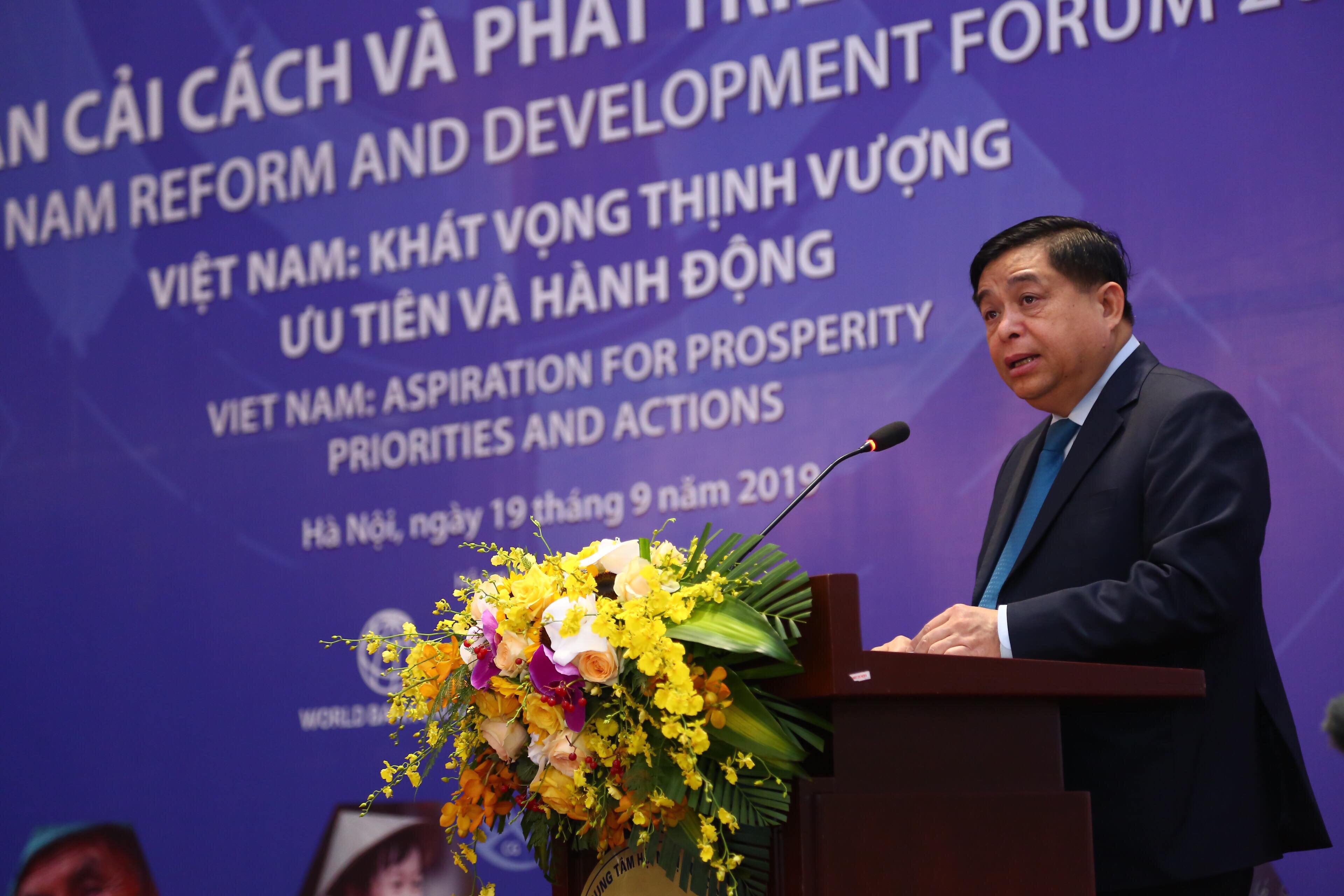VN struggles to overcome medium income trap
VGP – Medium income trap poses considerable challenges for developing economies including Viet Nam, said Minister of Planning and Investment Nguyen Chi Dung.
 |
| Minister of Planning and Investment Nguyen Chi Dung at the Viet Nam Reform and Development Forum, Ha Noi, September 19, 2019 |
After joining the medium-income group, Viet Nam always belonged to the group of economies with high economic growth rates in the world and its average GDP growth rate at over 6.2% in the 2011-2018 period.
As of late 2018, Viet Nam’s GDP hit over US$ 250 billion, making it the 45th largest GDP economy in the world. The country’s GDP per capita was approximately US$ 2,600 and average income per capita touched over US$ 7,600.
According to Minister Dung, so far, Viet Nam has become a charming destination in the eyes of enterprises, foreign investors, and constantly growing FDI registration capital which exceeded over US$ 200 billion in the 2011-2018 period. The economy’s openness increased continually, equivalent to 200% of GDP.
In 2019, the country’s Global Innovation Index (GII) jumped three notches against 2018, ranking 42th out of 129 countries and territories. Viet Nam took the lead in the group of 26 lower medium-income countries and ranked third in ASEAN after Singapore and Malaysia.
Challenges lying ahead
Minister Dung acknowledged that Viet Nam had to cope with a mountain of challenges and difficulties.
Viet Nam was a lower medium-income country with modest labor productivity and weak competitiveness.
The economy operated to the market mechanism with shortcomings which must be perfected in order to optimize manpower efficiency and ensure sustainable growth.
The world is witnessing fast changes, complicated developments, tense economic competition, the fourth industrial revolution (Industry 4.0), and populous sharing economy which brought back both opportunities and challenges for developing countries like Viet Nam.
In the context, medium income trap poses considerable challenges for developing economies including Viet Nam not to mention the aspiration of prosperity.
Changing the mind
Minister Dung stressed the necessity to be innovative and change the mind; take positive actions to reform mechanisms and policies.
The Minister hoped that delegates would make practical contributions at the VRDF 2019 for Viet Nam to build the ten-year development strategy (2021-2030) and the five-year socio-economic development plan (2021-2025); figure out orientations and solutions to materialize its aspiration for Prosperity.
According to Mr. Dung, the aspiration for prosperity is a non-stoppable movement with both opportunities and challenges.
The draft strategy on socio-economic development in the 2021-2030 sets important orientations on completing the transformation process towards modern market economy, integration in accordance with international practices; building, finalizing and piloting legal framework for new business types, digital economy, provision of public services and environment protection in market principles.
Minister Dung also mentioned application and development of new technology with a priority to digital technology including 5G, post 5G, artificial intelligence, blockchain, in 3-D, Internetof things (IoT), network security, clean energy in order to raise productivity and efficiency./.
By Kim Loan

